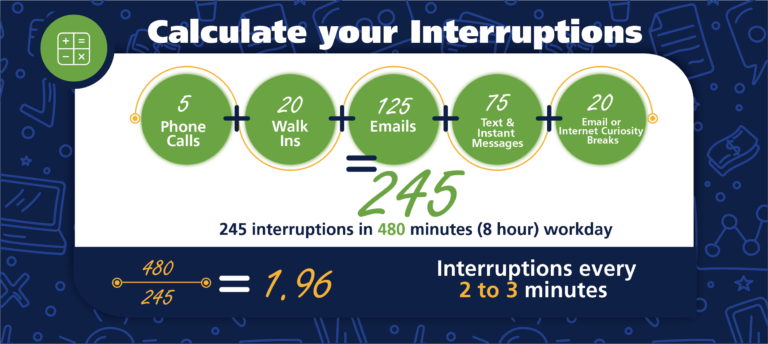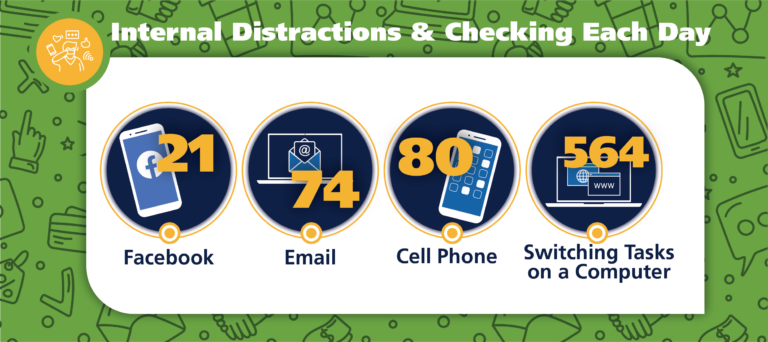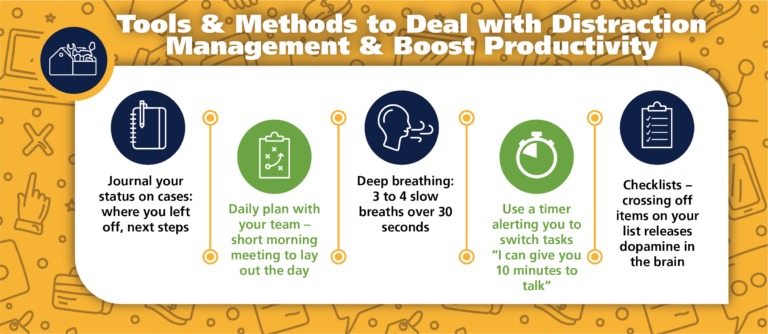Reducing Distractions and Boosting Productivity at Work
7.21.2022
Managing your time, your workload and increasing productivity are goals for most leaders in a workplace.
Paul Unger, attorney and founder of Affinity Consulting Group, says the first step is to acknowledge the type of interruptions in your workday. Most Americans deal with an interruption every five minutes at work. Attorneys tend to be interrupted every two to three minutes, according to Unger. Graphic 1 shows how to compute your own interruption rate using examples from his workload: “We live in a hair-on-fire world, and that is not going away anytime soon. We need to inject some process into our day so we can organize that information that comes in,” he said.

Everyone has heard of ADHD, attention deficit hyperactivity disorder. Unger describes an environmental factor called “technology-induced attention deficit trait.” ADT is not a medical problem but an environmental one. “ADT is why very smart people underperform. It’s the brain fog, the inability to immerse ourselves in one topic and achieve focus.”

We can be our own worst enemy in derailing the day. How often do you check email or Facebook or look at your phone? The average adult checks their phone 80 times a day.
These internal interruptions not only stop your workflow, but it can take several minutes to get back on track. A 2007 study conducted by Microsoft found that it took workers 15 minutes to regain focus after an interruption. Unger says that number is now up to 23 minutes needed to regain focus.
So, how do we limit distractions and interruptions? Set aside productivity time during the day and assign a single task in that time period. Think of it as an appointment with yourself in the same manner you make appointments with clients. Be specific about your work during that time. Unger says this will also help attorneys track time for clients.

The cost of multitasking is a 40% loss in productivity. Switching tasks means it will take more time to complete work and creates more stress in the workplace.
“We need to stop trying to be multitasking superheroes. The reality is that the human brain does a very poor job at multitasking, and we just need to realize that.”
You can watch the full replay of this event by registering here.



